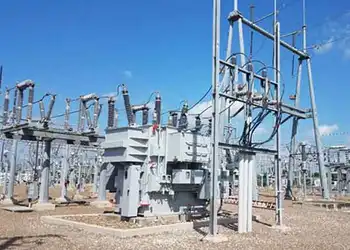Environment Canada Calls for Faster Reductions in Air Pollutants from U.S. Power Plants
An official submission made to the EPA from Environment Canada is in response to two options for an EPA rule to reduce Mercury emissions from U.S. power plants: a standard which would reduce emission by 30% by 2007; or a two stage approach with targets of 30% by 2010 and 70% by 2018.
Environment Canada supports the efforts being made by the EPA to limit emissions of mercury.
The department's modelling indicates that approximately 10% of the mercury deposited in Canada each year comes from U.S. sources, with that figure climbing to 38% in the Great Lakes Region, home to more than nine million Canadians.
Mercury also has a serious and disproportionate impact on Canada's Northern and Arctic communities. As a result, mercury reductions in the United States are needed to help protect human health and the environment in Canada.
The Department notes in its submission that the Government of Canada is working with its provincial and territorial partners to put in place a Canada-wide Standard that will prevent the release into the environment of 60-90 percent of the mercury in coal by 2010. Therefore, Canada is urging the United States to set stricter standards for mercury to be met by 2010 so that the health and environmental benefits from reduced air pollution are in place more quickly.
Environment Canada also notes that its efforts to promote the reduction of mercury emissions from coal-fired power plants are not confined to North America but also includes working with other countries, such as China, to encourage them to take action to cut mercury emissions. More than 20% of the airborne mercury that falls on Canada annually comes from Asia.
Environment Canada also submitted its opinion to the EPA on another proposed U.S. rule for reducing Nitrogen Oxides and Sulphur Dioxide, pollutants which contribute to acid rain and smog.
The EPA is proposing to reduce emissions from electric generating units by about 65 percent from power plants in 29 eastern and Midwestern states by 2015.
The department supports U.S. efforts to update its rules and encourages the EPA to finalize the caps with targets and timelines that are as aggressive as possible and are implemented as early as possible.
In Canada, federal-provincial and territorial governments are working under Canada-Wide Standards to have substantial reductions in these pollutants by 2010.
Collaboration between the two countries under the Canada-U.S. Air Quality agreement led to the substantial reductions in Acid Rain pollutants in the 1980s and 90s and the 2000 Ozone Annex is leading to further reductions in smog pollutants now.
Copies of the two submissions: "Proposed National Emission Standards for Hazardous Air Pollutants; and, in the alternative, proposed standards of performance for new and existing stationary sources: Electric Utility Steam Generating Units"; and "Proposed rule to reduce interstate transport of fine particulate matter and ozone (interstate Air Quality rule)" are available from Environment Canada's web site at www.ec.gc.ca/pdb/can_us/canus_trans_e.cfm
Related News

Australia to head huge electricity and internet project in PNG
SIDNEY - Australia will lead a new multi-billion-dollar electricity and internet rollout in Papua New Guinea.
The Australian newspaper reported New Zealand the US, Japan and South Korea are supporting the project, which will be PNG's largest ever development investment.
The project will deliver internet to 70 percent of PNG and improve access to power.
Both China and the US are also expected to announce new investments in the region at the APEC summit this week.
Beijing will announce new mining and energy investments in PNG, and two Confucius Insitutes to be housed at PNG universities.





